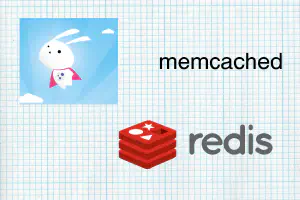
A Quick Update
This year, I really wanted to work on my output, and I think I’m doing pretty well. Here are some things that I’ve been publishing: Regular monthly blog posts on yakushima.blog A few posts this year on the Geolonia blog for work However, updates on this personal blog has been not so great – the previous post is the “2023 review” post, after all. I’ve been updating this blog from 2012, when we officially incorporated Flagship.
Link Unroller Service
As a small side project, I recently launched a “link unroller” service. This is a very simple service. You give it a URI, and it follows any redirect chain for you. Then it spits out the final URI via a friendly JSON API. Give it a spin: https://unroll.kbys.me/unroll?uri=http://bit.ly/1QZ6acT Basically, all you do is send a GET request to: https://unroll.kbys.me/unroll?uri=<URI to unroll> Done. If there are no problems, you will get a JSON response:bundler gotcha
So, this is a thing: bundle install --without development:test ... ... Bundle complete! XX Gemfile dependencies, XX gems now installed. Gems in the groups development and test were not installed. Now, bundle install ... ... Bundle complete! XX Gemfile dependencies, XX gems now installed. Gems in the groups development and test were not installed. Basically – you run bundle install --without <group> once, and that’s saved in .bundle/config. So next time you run bundle install without any arguments, it won’t install gems in the groups you specify.Heroku + SSL = Expensive?
Note: This blog post covers the legacy SSL Endpoint. Heroku now recommends the use of Heroku SSL, which can provide you with a free certificate and HTTPS (provided you are using the Hobby tier or higher). If you use Heroku, you probably know a couple things: You can’t use an apex domain for your site (unless you use a DNS service that emulates ALIAS / ANAME records). Using your own SSL certificate costs $20/month.My Great Language Hunt -- Elixir
Edit 2016/4/29 I have written a follow-up piece to this blog post. As many of you probably know, I am a professional programmer. I started my professional career with WordPress and PHP development, and now I find myself doing a lot of Ruby work. I am still in the very early stages of my professional career – I have only been doing this for about 5 years. There are people who are much more experienced than I am, and there is a whole world of things that I have yet to learn and experience.Homebrew and PostgreSQL 9.4
Edit 2016/1/9 I have updated these instructions for upgrading from PostgreSQL 9.4 to 9.5. As you may know, I am a big PostgreSQL user and fan. I also use Homebrew to manage 3rd party software packages on my Mac. PostgreSQL 9.4 was just released a couple days ago with some really cool features – a binary-format JSON datatype for speed and flexibility (indexes on JSON keys? Of course.), and some really good performance improvements.Web App Development and Caching
Any web developer who works with external services or databases (that’s probably almost every web developer) has probably run into performance problems. The problem is that running code by itself is pretty fast. Databases and external services / APIs are very slow. Waiting on an external API to load is basically the computer equivalent of waiting for a brontosaurus to walk a kilometer. As web developers, we have a very powerful tool called caching.
App.net Object Sync
I recently released my first app on the Mac App Store, Toki, and I decided that talking about the inner workings of the sync mechanism I’m using would not only be interesting, but helpful for me to think about some of the problems I’m having[footnote]This is inspired by the “Vesper Sync Diary” series of blog posts by Brent Simmons[/footnote]. Toki uses an App.net sync mechanism that I’ve been thinking about and working on for a while – I thought that Toki would be a good low-profile app to test out some ideas in real-world use.
Kerbal Space Program - Asteroid Redirect Mission
Kerbal Space Program -- KSP for short – is an incredibly addictive game about… Space exploration! In the game, you are in charge of the space program on planet Kerbin. Kerbin is located in a solar system quite similar to our own solar system, with a few differences. I’ve been playing this game for a few months, and finally decided to write a blog post about my experiences and thoughts.
App.Net Comments Widget on WordPress
I noticed that most of the good discussion I was having about blog posts were on App.net. Turns out, many other people feel the same way, and there’s even an official App.net comments widget! I’ve been testing a WordPress plugin to replace the default WordPress comments with ADN comments on this site for quite a while, so I decided to publish it in the WordPress Plugin Directory. Just search for “ADN Comments”, and it should be the first result.